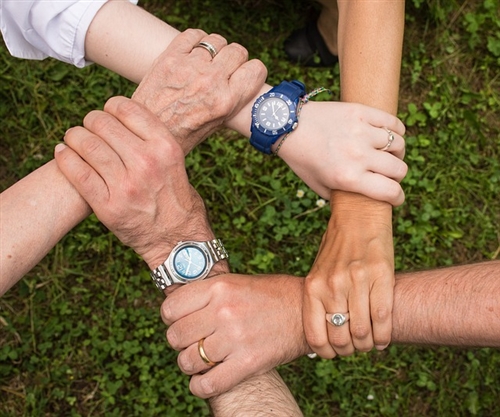


Trust is the foundation of strong relationships, both personal and professional. It allows you to be vulnerable, rely on others, and build a sense of security and connection. But how do you become someone who can trust others? It's not just about blindly believing everyone you meet. Trustworthiness is a two-way street, and developing the ability to trust others involves self-awareness, emotional intelligence, and setting healthy boundaries.
Understanding Trust
Trust is a complex emotion that involves believing in someone's reliability, honesty, and good intentions. It's the feeling that you can depend on someone to follow through on their commitments and act in your best interest. Trust is built over time through consistent positive interactions and experiences.
The Importance of Trust
Trust is essential for healthy relationships. It allows for:
- Stronger communication: When you trust someone, you feel comfortable sharing your thoughts and feelings honestly, leading to deeper and more meaningful conversations.
- Increased cooperation: Trust fosters a sense of teamwork and collaboration, allowing you to work together towards shared goals.
- Greater intimacy: Trust is a key ingredient in emotional intimacy, allowing you to feel safe and supported in close relationships.
- Improved mental health: Trusting relationships can reduce stress, anxiety, and loneliness, and contribute to overall well-being.
Building the Capacity to Trust
The ability to trust others is not inherent. It develops through life experiences and can be strengthened with conscious effort. Here are some steps you can take:
Self-Awareness
The foundation of trusting others is trusting yourself. This involves understanding your own values, needs, and emotional triggers. When you are aware of your own vulnerabilities, you are better equipped to assess the trustworthiness of others.
Emotional Intelligence
Emotional intelligence is the ability to understand, manage, and express your own emotions, and to perceive, understand, and influence the emotions of others. By developing your emotional intelligence, you can better understand the motivations and intentions of others, which can help you decide who to trust.
Setting Healthy Boundaries
Healthy boundaries are essential for trusting relationships. Boundaries are limits you set to protect your physical and emotional well-being. By setting clear boundaries, you communicate to others what is and is not acceptable behavior, and you empower yourself to walk away from situations that violate your trust.
Making Wise Decisions about Trust
Trusting others doesn't mean being naive. It's important to use your judgment and make wise decisions about who you trust and to what extent. Here are some tips:
Observe Actions, Not Just Words
Pay attention to how people's actions align with their words. Someone who is trustworthy consistently follows through on their commitments and acts with integrity, even when it's difficult.
Start Small
Build trust gradually. Don't share your deepest secrets with someone you barely know. Start by sharing small things and see how they respond. Over time, as trust is earned, you can share more personal information.
Learn from Experience
Unfortunately, you will likely experience betrayal at some point in your life. Use these experiences as learning opportunities. Reflect on what happened, what you might have done differently, and how you can avoid similar situations in the future.
Conclusion
Trust is a cornerstone of healthy relationships. By developing self-awareness, emotional intelligence, and setting healthy boundaries, you can cultivate the ability to trust others and build strong, lasting connections.